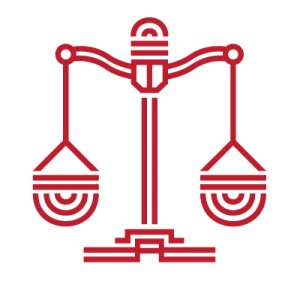Best Communications & Media Law Lawyers in Midrand
Share your needs with us, get contacted by law firms.
Free. Takes 2 min.
List of the best lawyers in Midrand, South Africa
About Communications & Media Law in Midrand, South Africa
Communications and Media Law in Midrand, South Africa, is a dynamic field that covers the regulation, rights, and responsibilities concerning the dissemination of information through various platforms such as print, broadcast, digital media, and telecommunications. This area of law governs how information is created, shared, and consumed, providing a legal framework that balances freedom of expression with the protection of individual rights, intellectual property, and public interest. In Midrand, which is a key commercial and technological hub of Gauteng, the evolving nature of technology and media means that legal requirements are frequently updated to keep pace with advancements and global standards.
Why You May Need a Lawyer
There are several common situations where you may require the assistance of a Communications and Media Lawyer in Midrand:
- Launching a media business or starting a new broadcast channel and needing guidance for regulatory compliance.
- Facing allegations of defamation, libel, or slander in published or broadcast material.
- Negotiating licensing agreements for content use or distribution.
- Protecting copyrights, trademarks, and other intellectual property in media or online content.
- Handling disputes over privacy or the right to be forgotten involving digital or traditional media outlets.
- Dealing with advertising regulations and consumer protection laws relevant to public communications.
- Responding to government actions, such as take-down notices or involvement with the Independent Communications Authority of South Africa (ICASA).
- Navigating the complexities of online content regulation, including issues with social media posts, influencer marketing, and digital marketing compliance.
Local Laws Overview
Midrand, as part of South Africa, is governed by several statutes and regulatory bodies that oversee Communications and Media matters. Some of the key laws and regulatory frameworks include:
- The Electronic Communications Act which regulates telecommunication services, broadcasting, and spectrum allocation.
- The Broadcasting Act which governs all broadcast media, including licensing and content requirements.
- The Films and Publications Act which regulates the distribution and classification of films, games, and certain publications, including online content.
- The Promotion of Access to Information Act (PAIA) and Protection of Personal Information Act (POPIA) which relate to data access, privacy, and data protection.
- Oversight by the Independent Communications Authority of South Africa (ICASA), responsible for ensuring compliance across the communications and broadcasting sectors.
- Case law governing defamation, invasion of privacy, and freedom of expression, especially relevant in journalistic and online contexts.
- SANC (South African National Council) codes and BCCSA (Broadcasting Complaints Commission of South Africa) guidelines that apply to broadcast and advertising standards.
Frequently Asked Questions
What is Communications and Media Law?
It is a legal field that regulates how information is communicated and disseminated via different media platforms including television, radio, print, internet, and mobile networks. It covers issues relating to freedom of expression, censorship, privacy, defamation, intellectual property, and regulatory compliance.
Do I need a license to start a media company in Midrand?
Yes, most broadcast and telecommunications services require licenses from ICASA. Online publications may have different requirements but still need to comply with content, advertising, and privacy laws.
What are the risks of publishing content online?
Common risks include defamation, copyright infringement, invasion of privacy, and breaches of regulatory codes. Legal action can be taken for offensive or unlawful material.
How do I protect my media content from being copied or misused?
Registering your copyright, using appropriate contracts, and consulting a lawyer for enforcing your intellectual property rights are effective steps.
What is defamation and how can I avoid it?
Defamation occurs when false information that harms someone’s reputation is published. Always fact-check and avoid making unverified accusations in media and online platforms.
How do South African privacy laws affect media companies?
POPIA sets out how personal information must be collected, used, and stored. Media companies must obtain consent before sharing or publishing personal data, and implement measures to protect that information.
Are there restrictions on advertising in South Africa?
Yes, advertising is regulated to ensure it is truthful, not misleading, and does not violate consumer protection laws. Industry codes and the Advertising Regulatory Board apply standards in addition to legal requirements.
What can I do if someone misuses my copyrighted work online?
You can send a cease and desist, request the removal of content through service providers, or pursue legal action under copyright law. A lawyer can guide you through the enforcement process.
How are broadcast complaints handled?
They are usually submitted to the Broadcasting Complaints Commission of South Africa (BCCSA), which investigates and adjudicates complaints against broadcasters violating codes or regulations.
Where do I report illegal or offensive online content?
Reports can be made to the Film and Publication Board for illegal content, or to relevant platforms, and authorities like ICASA or the police for serious violations.
Additional Resources
If you need further information or assistance relating to Communications and Media Law, consider the following resources and organizations:
- Independent Communications Authority of South Africa (ICASA)
- Broadcasting Complaints Commission of South Africa (BCCSA)
- Film and Publication Board (FPB)
- Advertising Regulatory Board (ARB)
- South African Human Rights Commission (SAHRC)
- Legal Aid South Africa for those needing legal support and representation
- Local law libraries and university faculties of law in Gauteng
Next Steps
If you require legal assistance with a Communications or Media Law matter in Midrand:
- Document and gather all relevant information, correspondence, and materials relating to your legal issue.
- Consult a qualified Communications and Media Law attorney who is familiar with local and national regulations.
- If you are unsure where to start, seek a preliminary consultation, which many attorneys offer to discuss your situation and potential legal approaches.
- Stay updated with changes in laws and regulations by subscribing to official communications or legal news services pertinent to the media industry.
- Consider reaching out to professional bodies or industry associations for referrals or further guidance.
Taking these steps can help you effectively navigate the complexities of Communications and Media Law in Midrand, South Africa, and protect your interests in today’s fast-evolving media environment.
Lawzana helps you find the best lawyers and law firms in Midrand through a curated and pre-screened list of qualified legal professionals. Our platform offers rankings and detailed profiles of attorneys and law firms, allowing you to compare based on practice areas, including Communications & Media Law, experience, and client feedback.
Each profile includes a description of the firm's areas of practice, client reviews, team members and partners, year of establishment, spoken languages, office locations, contact information, social media presence, and any published articles or resources. Most firms on our platform speak English and are experienced in both local and international legal matters.
Get a quote from top-rated law firms in Midrand, South Africa — quickly, securely, and without unnecessary hassle.
Disclaimer:
The information provided on this page is for general informational purposes only and does not constitute legal advice. While we strive to ensure the accuracy and relevance of the content, legal information may change over time, and interpretations of the law can vary. You should always consult with a qualified legal professional for advice specific to your situation.
We disclaim all liability for actions taken or not taken based on the content of this page. If you believe any information is incorrect or outdated, please contact us, and we will review and update it where appropriate.











